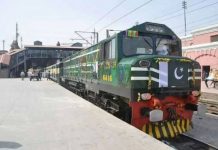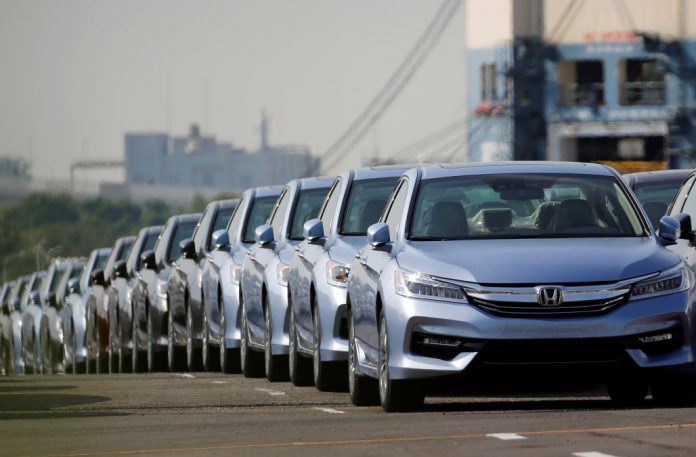LAHORE: The State Bank of Pakistan (SBP) has released its credit data for the month of September, 2022. Net automotive loans have reduced by 0.69 per cent month-on-month (MoM) from August for a contraction of Rs 2.4 billion.
Outstanding automotive credit stood at Rs350.1 billion in August, in comparison to Rs352.5 billion in August. This amounts to the three consecutive months of contraction for a total reduction of Rs17.74 billion.

It is pertinent to note that the negative value does not mean the banks did not engage in any lending. A negative value denotes that the number of loans that have matured exceeds the number of fresh loans that have been taken out.
Profit asked Muhammad Iftikhar Javed, Business Head of Secured Lending at Bank Alfalah, for the reasons as to why this phenomenon was taking place. Javed listed a myriad of reasons.
Firstly, “It is because of the State Bank of Pakistan’s (SBP) restrictions to discourage lending to the automobile sector,” said Javed.
The SBP has indeed taken deliberate measures to make automotive financing unappealing and costly for customers to stem Pakistan’s forex outflow. Earlier this year, SBP amended the prudential requirements again to reduce tenors from five to three years for cars above 1000cc. This was on top of last year’s measures, which saw the SBP cap tenors to five years, increase the down payment from 15 per cent to 30 per cent, cap financing at Rs3 million, and disallow financing to be used for imported vehicles.
Secondly, Javed listed “Attrition of portfolios due repricing factor on account of variable interest rate loans being linked with the KIBOR and policy rates.” This was a view that had been highlighted to Profit by Babbar Wajid, Head of Consumer Banking at Habib Metropolitan Bank, and Pervez Shahid, former Co-Chairman of Bank Alfalah’s Central Management Committee, as customers would seek to terminate their agreements prematurely and secure their assets (cars) rather than risk defaulting on their payments.
Javed also listed, “Slowed production, supply of vehicles and hesitation of OEMs in advance order intake due to import restrictions, and the high & unstable prices of vehicles.”
These two factors cannot be decoupled. They exist on account of Pakistan’s precarious forex position whereby the Rupee has depreciated significantly across the course of 2022. A weaker Rupee applies upwards pressure on the cost of manufacturing vehicles and therefore leads to manufacturers implementing pricing revisions with each round of depreciation.
The constant repricing has led to demand destruction with customers being priced out of their favorite vehicles. However, it has also simultaneously curtailed supply through the SBP’s measure to stem the outflow of forex through the automotive sector. SBP through its increased administrative oversight of the import of completely-knocked-down (CKD) kits has created supply shortages that have led to automotive companies actively halting sale of their vehicles for differing periods over the past few months. Thus, customers that want to buy a vehicle irrespective of its price are unable to do so due its unavailability which subsequently reduces their likelihood of acquiring automotive credit.
Finally, Javed also cites the “Focus of Consumer on fuel efficient & small cars. They require small loan tickets which impacts the size of the advances.”
The final point is a culmination of many of the aforementioned factors. Limited availability, higher prices, and reduced automotive credit are all factors that can lead to customers gravitating towards more affordable options. Particularly as the credit requirements for affordable cars are more lenient than the ones on the upmarket category.
Looking ahead, it is likely that another contraction can be expected for the month of October. This is because all of the aforementioned factors highlighted by Javed are characteristics of Pakistan’s macroeconomic current woes. Moving on from September to October, all of the problems highlighted still stand.

























hi daniyal
thanks for this post
this blog is one of the freshest blogs about Pakistan
thanks a lot
Finally, Javed also cites the “Focus of Consumer on fuel efficient & small cars. They require small loan tickets which impacts the size of the advances.”
very nice
i like your website
thanks a lot
We will provide you with interesting information about motorcycles and cars and their price and useful information about their function. I like to gather information about motorcycles and cars. And we will do our best to provide you with accurate and interesting information. And we will try our best to provide you with information first and make this website a good and useful website
Thanks For The Content..Really Good
More of Similar Content,Check The Link
This Blog really gave me goosebumps to confidently read it
And we will do our best to provide you with accurate and interesting information
Looking ahead, it is likely that another contraction can be expected for the month of October. This is because all of the aforementioned factors highlighted by Javed are characteristics of Pakistan’s macroeconomic current woes. Moving on from September to October, all of the problems highlighted still stand.
Profit asked Muhammad Iftikhar Javed, Business Head of Secured Lending at Bank Alfalah, for the reasons as to why this phenomenon was taking place. Javed listed a myriad of reasons.
Firstly, “It is because of the State Bank of Pakistan’s (SBP) restrictions to discourage lending to the automobile sector,” said Javed.
Finally, Javed also cites the “Focus of Consumer on fuel efficient & small cars. They require small loan tickets which impacts the size of the advances.”
This was a view that had been highlighted to Profit by Babbar Wajid, Head of Consumer Banking at Habib Metropolitan Bank, and Pervez Shahid, former Co-Chairman of Bank Alfalah’s Central Management Committee, as customers would seek to terminate their agreements prematurely and secure their assets (cars) rather than risk defaulting on their payments.
we will try our best to provide you with information first and make this website a good and useful website
Moving on from September to October, all of the problems highlighted still stand.